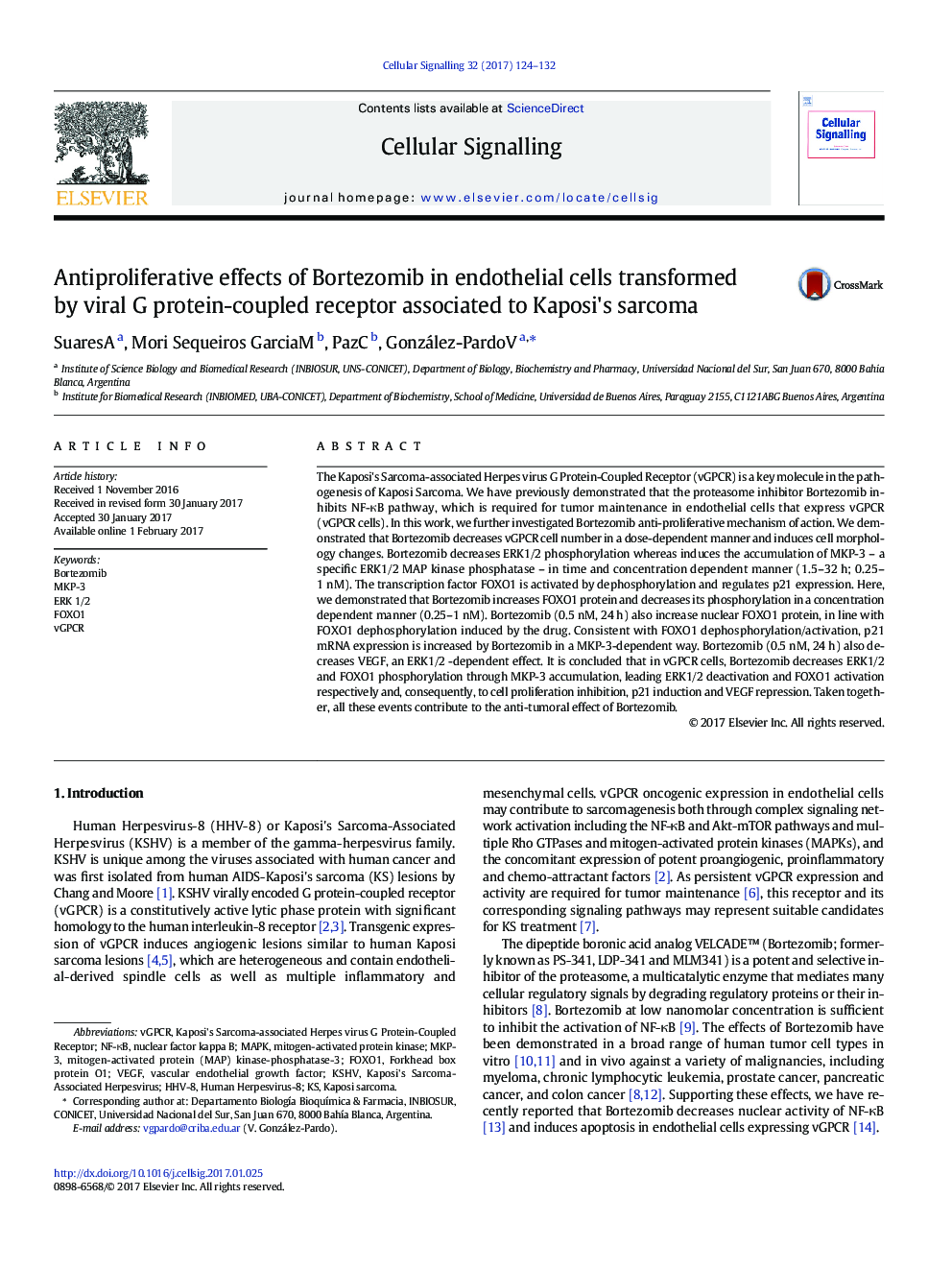| Article ID | Journal | Published Year | Pages | File Type |
|---|---|---|---|---|
| 5509382 | Cellular Signalling | 2017 | 9 Pages |
â¢Bortezomib decreases vGPCR cell number and induces cell morphology changes.â¢Bortezomib reduces ERK1/2 phosphorylation and induces MKP-3 accumulation.â¢Bortezomib upregulates FOXO1 protein and decreases its phosphorylation.â¢p21 mRNA expression is increased by Bortezomib in a MKP-3-dependent way.â¢VEGF mRNA is decreased by Bortezomib through ERK1/2 inhibition.
The Kaposi's Sarcoma-associated Herpes virus G Protein-Coupled Receptor (vGPCR) is a key molecule in the pathogenesis of Kaposi Sarcoma. We have previously demonstrated that the proteasome inhibitor Bortezomib inhibits NF-κB pathway, which is required for tumor maintenance in endothelial cells that express vGPCR (vGPCR cells). In this work, we further investigated Bortezomib anti-proliferative mechanism of action. We demonstrated that Bortezomib decreases vGPCR cell number in a dose-dependent manner and induces cell morphology changes. Bortezomib decreases ERK1/2 phosphorylation whereas induces the accumulation of MKP-3 - a specific ERK1/2 MAP kinase phosphatase - in time and concentration dependent manner (1.5-32 h; 0.25-1 nM). The transcription factor FOXO1 is activated by dephosphorylation and regulates p21 expression. Here, we demonstrated that Bortezomib increases FOXO1 protein and decreases its phosphorylation in a concentration dependent manner (0.25-1 nM). Bortezomib (0.5 nM, 24 h) also increase nuclear FOXO1 protein, in line with FOXO1 dephosphorylation induced by the drug. Consistent with FOXO1 dephosphorylation/activation, p21 mRNA expression is increased by Bortezomib in a MKP-3-dependent way. Bortezomib (0.5 nM, 24 h) also decreases VEGF, an ERK1/2 -dependent effect. It is concluded that in vGPCR cells, Bortezomib decreases ERK1/2 and FOXO1 phosphorylation through MKP-3 accumulation, leading ERK1/2 deactivation and FOXO1 activation respectively and, consequently, to cell proliferation inhibition, p21 induction and VEGF repression. Taken together, all these events contribute to the anti-tumoral effect of Bortezomib.
